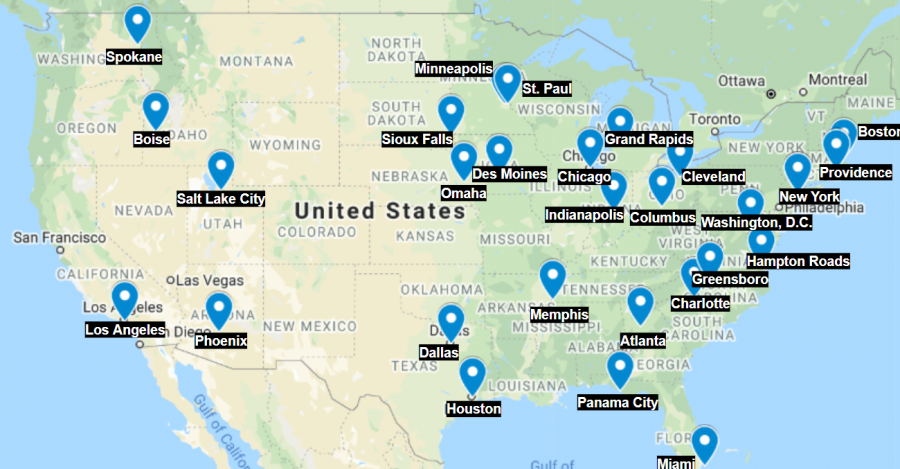As of January 2020, Verizon Wireless no longer activates older versions of the iPhone, according to their website. These models include the iPhone 5s and earlier, along with any models that use their CDMA network.
CDMA (Code Division Multiple Access) is a way for texts and calls to reach cell phone users without cables or wires. In technical terms, it’s a wireless transmission technology.
Mobile texts and calls are sent by radio waves to devices. CDMA transmits messages over the entire frequency available to a user, instead of giving each user a specific frequency and switching between them, according to TechTerms.
This change in Verizon’s activation policy is occurring due to their transition to support 5G. Currently, Verizon supports 5G networks in 31 cities, as reported by Verizon.
Verizon and AT&T were among the first networks to launch 5G mobile networks in 2018. Service was, and still is, extremely limited, according to Cnet. The limited function has led to a bit of confusion in the general public.
“I thought that LTE was better [than 5G], but a friend told me 5G is better. I think 5G runs better on my phone, though,” said Sunny Huang, a senior.
Huang has AT&T and can receive 5G in some Bay Area locations.
According to PCMag, 5G stands for fifth-generation cellular wireless. It is a term used to describe networks used by mobile phones. 5G networks are supposed to allow for a wider variety of more advanced applications, similar to how 4G (fourth-generation cellular wireless) allowed for apps such as Uber and Snapchat. However, these changes are not expected to arrive for a few years. Verizon has one of the most competitive 5G networks thus far.
“They say that Verizon 5G is one of the best 5G networks, better than the others,” said Leo Shohet, a sophomore.
However, this change comes with a cost. Devices that do not support 5G networks (those that run on CDMA) will slowly become obsolete. These devices, for Verizon, include the early iPhone models. By Jan. 1, 2021, these devices will receive limited customer support, and Verizon will encourage owners to upgrade to newer models.
While changes like these are commonplace among quickly advancing technology, many Verizon customers feel as though Verizon has not done an adequate job of communicating the change to them.
“I found out [about the change to 5G] from a friend,” said Kevin Bachelor, a sophomore. “When I talked to my mom and dad, who are the ones paying for it, they didn’t even realize it.”
In general, however, Bachelor finds Verizon to be a network comparable to others.
“I don’t have coverage in many places as I’d like, but I’m pretty sure that’s similar to other [cell] companies,” Bachelor said. “I think it’s a pretty good company. Their phone plans are pretty good.”
Currently, 5G networks are not available to Verizon Bay Area customers.












